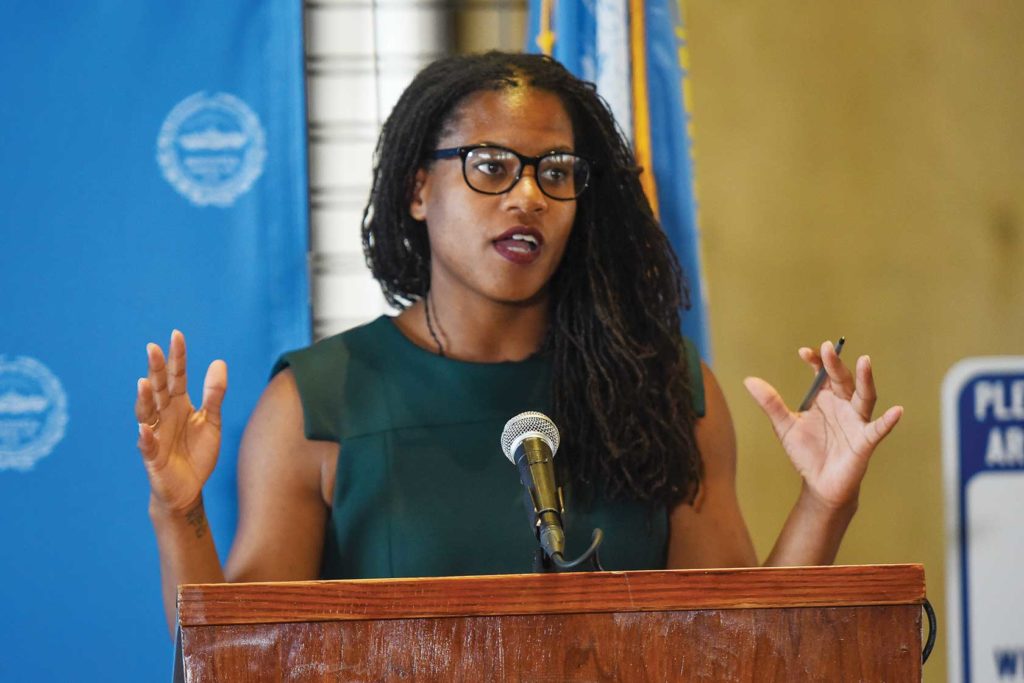Reforms slow to take hold at Zoning Board
Neighborhood activists say records are not accessible

Most Boston residents may not know much about, let alone have engaged with, the city’s Zoning Board of Appeal, which adjudicates hundreds of appeals by developers and ordinary residents for zoning variances — exceptions to Boston zoning rules — every year.
But even for those who appear before the ZBA regularly, including developers, architects and representatives of neighborhood civic organizations, the body can seem like a kind of bureaucratic sphinx — arcane and indecipherable, even as it represents one of the most powerful forces shaping development across Boston.
Lorraine Wheeler, organizer for the neighborhood group Roxbury Path Forward, has for years regularly attended ZBA meetings, voicing her group’s concerns, support or opposition regarding all manner of developments in her neighborhood.
The process, she says, has never been ideal. But since the COVID-19 pandemic, and after various rounds of proposed transparency reforms by various city officials, “in many ways nothing has changed,” says Wheeler.
In fact, in some ways it’s gotten worse, she says. And she is not alone in thinking so.
It has been more than three years since the ZBA was rocked by scandal — including the indictment of a city worker who pleaded guilty to accepting bribes to influence the Board’s decisions, and revelations that at least one active ZBA member had approved zoning for properties that his real estate company was selling.
In the wake of the scandal, then-Mayor Marty Walsh announced in 2020 a series of executive orders, as well as a home rule petition, both aimed at increasing transparency and accountability within the ZBA.
This past September, Mayor Michelle Wu announced a sweeping slate of new appointees to the ZBA — an effective overhaul — in an effort, she said, to “represent the diversity, talent, and expertise of our communities.”
But those appointees have yet to be confirmed by the City Council. And while Walsh’s executive orders remain in effect, including prohibiting some conflicts of interest and requiring disclosures by board members, the home rule petition died quietly on Beacon Hill.
Meanwhile, say some residents who deal with the ZBA regularly, the board has remained difficult to navigate, opaque and resistant to public input.
Multiple residents who spoke with the Banner describe an agency that has continued to reject seemingly commonplace modern transparency measures. Agendas, meeting minutes and decisions published by the ZBA remain bereft of detail and inscrutable even to keen observers. The agency’s website is essentially unsearchable when it comes to the thousands of cases that come before it. Developer and architectural plans are not posted publicly; nor are last-minute changes made to those plans posted or otherwise made available to residents and community groups who may have already met with developers.
And with ZBA meetings still conducted entirely online since the COVID-19 pandemic, says Wheeler, it’s only become harder for ordinary residents to be heard.
“I had my hand raised, listening for this case to be called on,” recalls Wheeler of attending a ZBA hearing via Zoom, “and I wasn’t recognized. And other people have told me that that has happened.”
Eileen Boyle, vice president of the Columbia-Savin Hill Civic Association, can relate.
“I still don’t think they’re transparent enough. I think they’re still in a silo,” Boyle says, noting that recently she was required to testify by writing in the video hearing’s group chat.
“They’re controlling it to just make it easier for themselves instead of letting the public voice their concerns,” says Boyle.
State Senator Lydia Edwards, a longtime critic of the ZBA, who as a city councilor crafted her own home rule petition to reform the agency, says the measures put forward by mayors Walsh and Wu have yet to result in more transparency or inclusivity.
“They actually became ruder during the pandemic,” she said. “Because they weren’t in a room with anybody, they were now on Zoom, they could mute people, they didn’t have to listen to anybody.”
Under Edwards’ previous proposals, the ZBA would have been restructured to include seats representing renters, environmental concerns and modern urban planning expertise. It would also have been required to adopt various electronic notification measures, allowing residents to access information without taking a day off to attend a hearing.
Whether such changes lie ahead is unclear. Wu’s new appointments, while applauded by many seeking ZBA reforms, are currently in limbo as they await hearings in a Council committee controlled by District 5 Councilor Frank Baker, a frequent critic of the mayor.
Meanwhile, because the ZBA is a state-enabled body, many, if not most, significant reforms — including changes to what interest groups may nominate board members, must be passed as a home rule petition to the state Legislature, where such petitions often expire without action.
Still, Edwards says she hopes the new Council and the mayor come up with a better home rule petition than that submitted by former mayor Walsh and that she believes such a petition will get a hearing on Beacon Hill.
“I think they could be more aggressive about who sits on the ZBA,” says Edwards.






